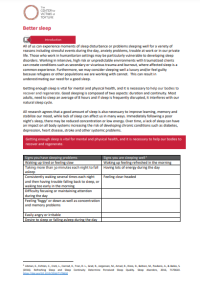These handouts, created by the Center for Victims of Torture, cover a variety of topics regarding self-care and wellness for service providers, including health care providers. These are intended for the service provider to use in their own practice. The handouts cover the following topics: Better Sleep Boundaries Breathing Intentional Avoidance and Focus Grounding Techniques […]










